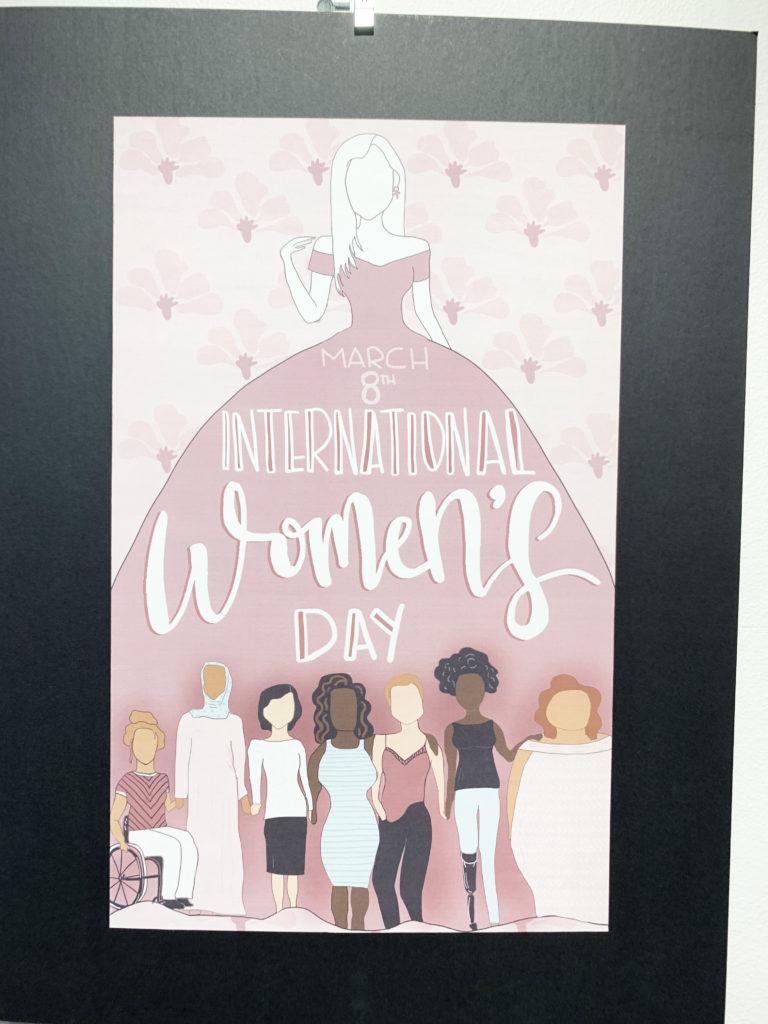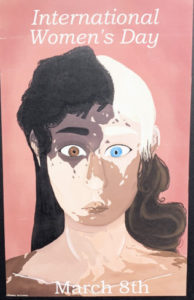Dionte Berry
Contributing Writer
dberry11@murraystate.edu
For Women’s History Month, the University has planned creative new ways to celebrate the women who have shaped history.
Gender and diversity studies and history professor Marjorie Hilton made sure this happened by collaborating with her history and GDS 316 students. One of the first events they planned together was a women’s history Jeopardy on Wednesday, March 11.
Makayla Willet, senior theater major, was in charge of setting up the event with her fellow students.
“The Jeopardy focused on women in pop culture from the past 100 years and how they have used their platforms to create change,” Willet said.
Willet also focused on setting up women’s history bingo. Instead of a number being called out, women who have impacted history will be called out alongside a slideshow that informs the audience of their achievements.
Women’s history bingo will take place on March 25 in the Curris Center ballroom at 6 p.m.
“Having a month dedicated to learning about where I came from, about the women that have come before me and the potential that other women and I can reach means a lot,” Willet said.
Willet said students are taught about men in history, but it’s just as important to learn about women and their accomplishments.
Hilton and her students also hung posters of 20 quotes from inspiring black women in the Faculty Hall staircases, as well as photos of 100 commonly overlooked women in history with information about their achievements.
Lastly, there is an art exhibit featuring work from both faculty and students commemorating women in the de-stress room of Waterfield Library.
Hilton felt that it was her responsibility as a member of the history department to coordinate these events.
“It occurred to me that the history department does not really do anything to celebrate Women’s History Month, so I decided to plan something myself,” Hilton said.
She was inspired to plan educational events with the reintroduction of the GDS course.
“We haven’t taught the women in world history course for a while, and the year also coincided with the 100th anniversary of women’s suffrage,” Hilton said. “I thought that we should do more than what we have done in the past for women’s history.”
As a professor, it was important for Hilton to make the events educational and to incorporate her students so they could also learn.
“All of these projects are being done to educate people about not just the women we all know like Rosa Parks and Eleanor Roosevelt, but I encourage people to learn about someone that many people don’t know about,” Hilton said.
Although Hilton is a historian, she constantly learns about women in history and believes the more women learn about their history, the more it shows them what they can be.
“Traditionally history was about great men and wars and being a historian,” Hilton said. “That’s not what I work on nor do my colleagues. It’s about people thinking of history in a broader sense and including people that have still not been included in history books.”
The Women’s Faculty Caucus, who advocate for underrepresented faculty, spread out the celebration of International Women’s Day over the course of a few days. Antje Gamble, assistant professor of art and design and WFC representative, coordinated a Wikipedia-Edit-A-Thon at Waterfield Library.
“We had students and faculty come in and input women and people of color into Wikipedia, because they are underrepresented,” Gamble said.
They also partnered with Cinema International to show the Chilean film “Spider Thieves” and hosted a panel to discuss Margaret Atwood’s latest novel “The Testaments.”
“Each year we focus on a different initiative to support underrepresented faculty,” Gamble said. “Although women is in our name, we are hoping to expand to people of color and LGBT people.”
Women’s history is about more than highlighting accomplishments of the past. It’s important to recognize the power that past accomplishments provide for women in the future.





























































































